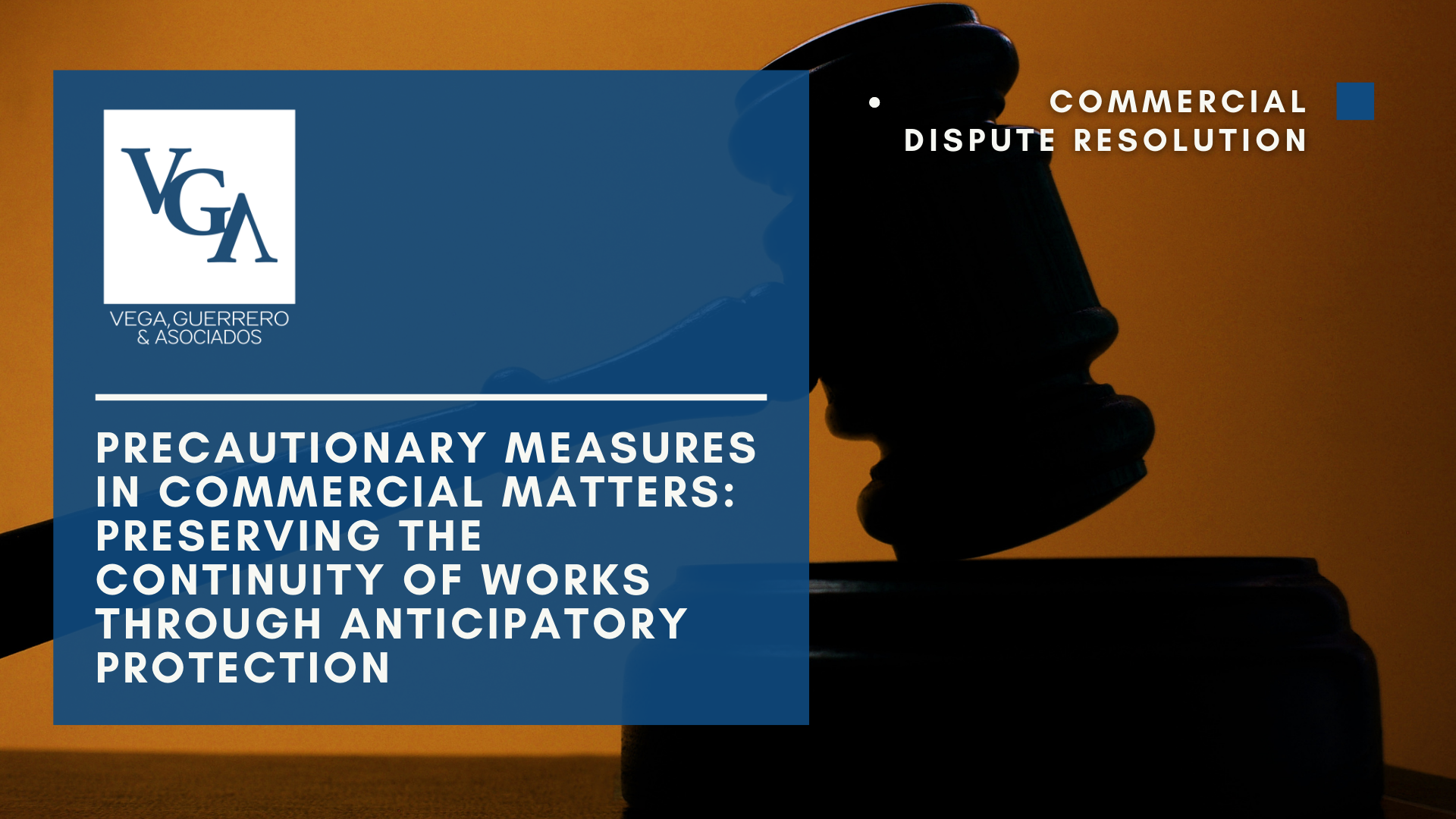Precautionary measures in the commercial sphere are a crucial legal tool for safeguarding the interests of parties involved in litigation. These measures not only aim to prevent potential irreparable harm but also serve the purpose of ensuring the effectiveness and enforcement of judicial decisions. In this context, it is vital to understand their objective, benefits, and, in particular, the essential role of anticipatory protection precautionary measures in urgent construction and services contracts.
Objective of Precautionary Measures in Commercial Matters:
The primary objective of precautionary measures in the commercial realm is to prevent irreparable harm to one of the parties during the duration of a judicial process. These measures seek to maintain fairness and ensure that judicial resolutions can be effectively implemented at the conclusion of the litigation. In the context of commercial contracts, these measures are essential for protecting the rights of the involved parties and ensuring the successful execution of agreed-upon terms.
Benefits of Precautionary Measures in Commercial Matters:
One of the main benefits and objectives of precautionary measures in commercial matters is the prevention of Irreparable Harm: Precautionary measures act as a protective shield, preventing one party from suffering irreparable harm while a dispute is being resolved, either by ordering the preservation of things in their current state until the core of the litigation is resolved or by ordering the advancement of certain effects that would eventually result from the issuance of the final judgment.
Precautionary measures ensure that judicial decisions are effectively enforced, promoting the execution of commercial contracts and agreements. They also contribute to maintaining a balance between the parties during the legal process, preventing one party from unfairly benefiting while the dispute is being resolved.
In the complex world of construction contracts, anticipatory protection precautionary measures become a vital resource for maintaining the flow of projects, even when legal disputes threaten to halt them. We will explore how these measures not only protect the interests of the parties involved but also act as a catalyst for the continuity of works amid litigation.
Halting the Construction: A Possible Reality?
In the context of construction contracts, various circumstances can trigger legal disputes, resulting in the suspension of construction. Whether due to a breach of contractual obligations, discrepancies in the interpretation of clauses, or any other conflict, stopping the work can have significant consequences, from delays to substantial economic losses.
Anticipatory Protection: A Solution to Continue the Work:
Anticipatory protection emerges as a strategic tool for parties involved in a contractual conflict related to construction projects. In the case of work suspension, the affected party can request anticipatory protection precautionary measures with the aim of allowing the project to continue while the litigation is resolved. How does this benefit the parties?
- Avoiding Economic Losses: The suspension of work can generate substantial economic losses. Anticipatory protection provides a way to avoid these losses by allowing the work to continue, provided measures are taken to ensure the protection of the interests of all parties.
- Maintaining Operational Continuity: In projects where time is critical, suspension can have a significant impact on planning and execution. Anticipatory protection precautionary measures ensure that the work continues, avoiding unnecessary delays.
- Preserving Commercial Relationships: The continuation of work under precautionary measures also provides an opportunity for conflicting parties to negotiate and resolve their disputes more effectively, preserving long-term commercial relationships.
In conclusion, anticipatory protection precautionary measures stand as a bulwark against the suspension of works in the commercial sphere. By providing a pathway for the continuity of projects amid litigation, these measures not only protect the interests of the parties but also foster an environment conducive to the negotiated resolution of disputes, thus preserving strong commercial relationships.




